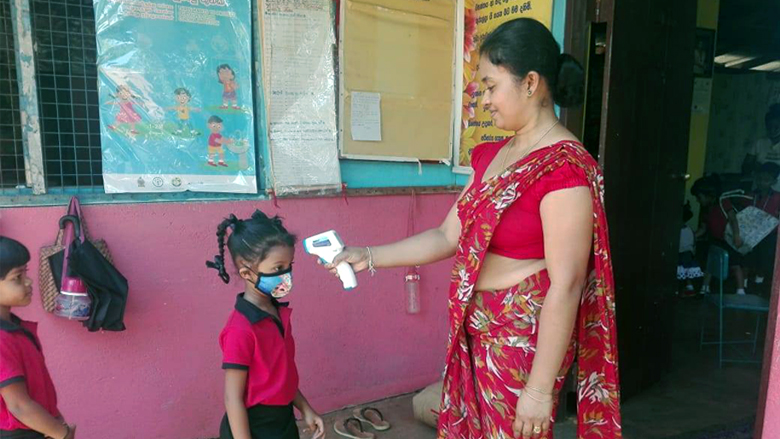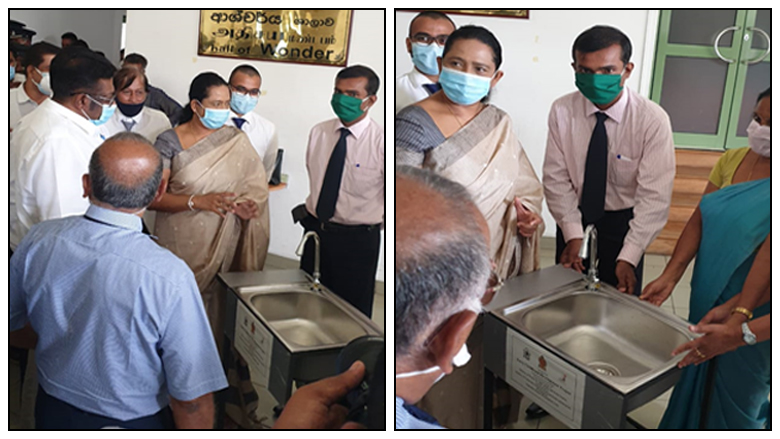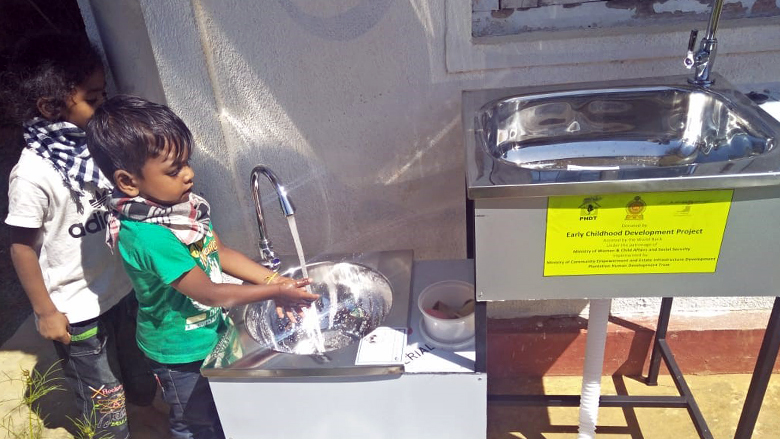Challenge
Sri Lanka, a lower middle-income country, has a well-established program for Maternal and Child Health (MCH) that is committed to improving access to quality ECD services. To this end, it has been pursuing a strategy of public-private partnerships to expand access to ECD services. While progress is being made, pre-primary education is not yet universal, and the quality of ECD programs remains a challenge. Before the project started, ECD coverage was low and inequitable. Physical facilities and teaching and learning materials, furniture, and other inputs were of poor quality, the teaching force was not sufficiently trained, and national standards and systems for monitoring quality were inadequate. A national survey indicated that less than half of all ECD centers had facilities that met basic requirements for instructional quality. When the COVID-19 pandemic struck in early 2020, the government’s efforts to improve access to early childhood care and education was making good progress.
Approach
Responding to the government’s request to help build Sri Lanka’s ECD system, in 2015 the World Bank financed the first-ever ECD project in the country and, more generally, in the South Asia Region. The Bank harnessed technical assistance from leading ECD specialists and used cutting-edge research to inform project design. The differing needs of the country’s plantation and non-plantation sectors were independently addressed, while ensuring that solutions would lead to coherent systemic improvements. Tea is a major export commodity for Sri Lanka. The Plantation Sector is managed by the Plantation Human Development Trust (PHDT) and requires integrated early childhood care and education services to permit parents, especially women to continue with tea harvesting and tea curing activities. In the non-Plantation Sector early childhood care and education are separate services. They are managed and administered by two ministries and multiple agencies. Their needs differ with respect to financing, governance, and service delivery solutions. A particularly innovative facet was the focus on brokering discussions and agreements between the public and private sectors for the public financing of private ECD centers.
Results
The Project has had far reaching results. About 1.35 million children between the years 2015 and 2020, half of whom were girls, have benefitted directly, along with teachers, parents, members of the community (who were provided with ECD awareness and orientation programs), government officials, and project management staff.
Enhancing equitable access to ECD services: 578,160 or 12.8 percent more children, half of them girls, are now enrolled in 2020 in ECD centers compared to 512,620 children in 2015. Some 4,498 ECD centers are receiving Facility Improvement Grants. Prior to the project, private funding for private ECD centers was the norm. About 31,816 children receive tuition subsidy.
Improving the quality of ECD services: By September 2020, about 4,136 ECD centers were meeting national quality standards compared to only 1,000 in 2015; this result considerably exceeds the original end target of 3,500 centers. The project also supported the revision of the curriculum and child development standards used to guide the teaching-learning process in centers throughout the country. About 15,471 ECD teachers and teacher assistants have completed standardized short-term training between year 2015 and 2020. The majority of teachers had not been exposed to any form of ECD orientation/training programs prior to this initiative. Parental awareness programs on ECD have also been conducted through the project.
ECD centers conducting annual child development assessments: In 2020, about 3,852 centers (of which 365 were in the plantations) were conducting child development assessments, compared to none in 2015.
The recent COVID pandemic has increased poverty and vulnerability among many families and ECD centers had to close temporarily. The project has responded by:
- Financing personal protective equipment (masks, sanitizers, handheld thermal sensing thermometers) and hand washing basins in ECD centers for the health and safety of children and teachers.
- Expanding the tuition fee waiver support to more children as a direct assistance to the families facing economic hardships in the face of the COVID-19 pandemic.
- Providing teaching learning materials and kits to more centers to cater to a larger population of children in need.



